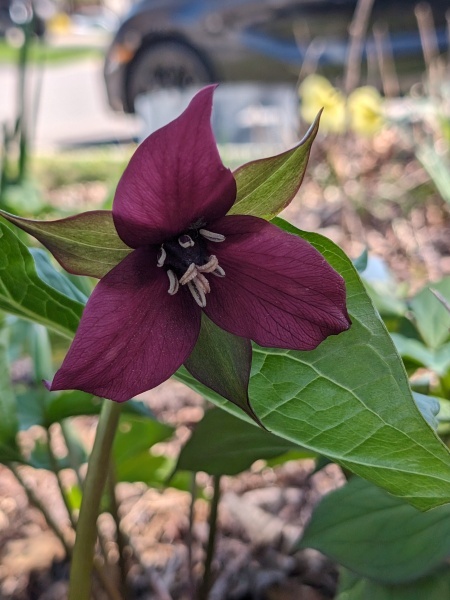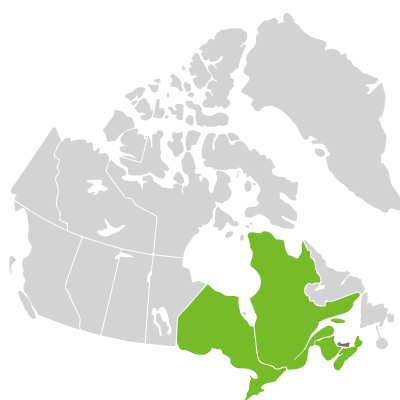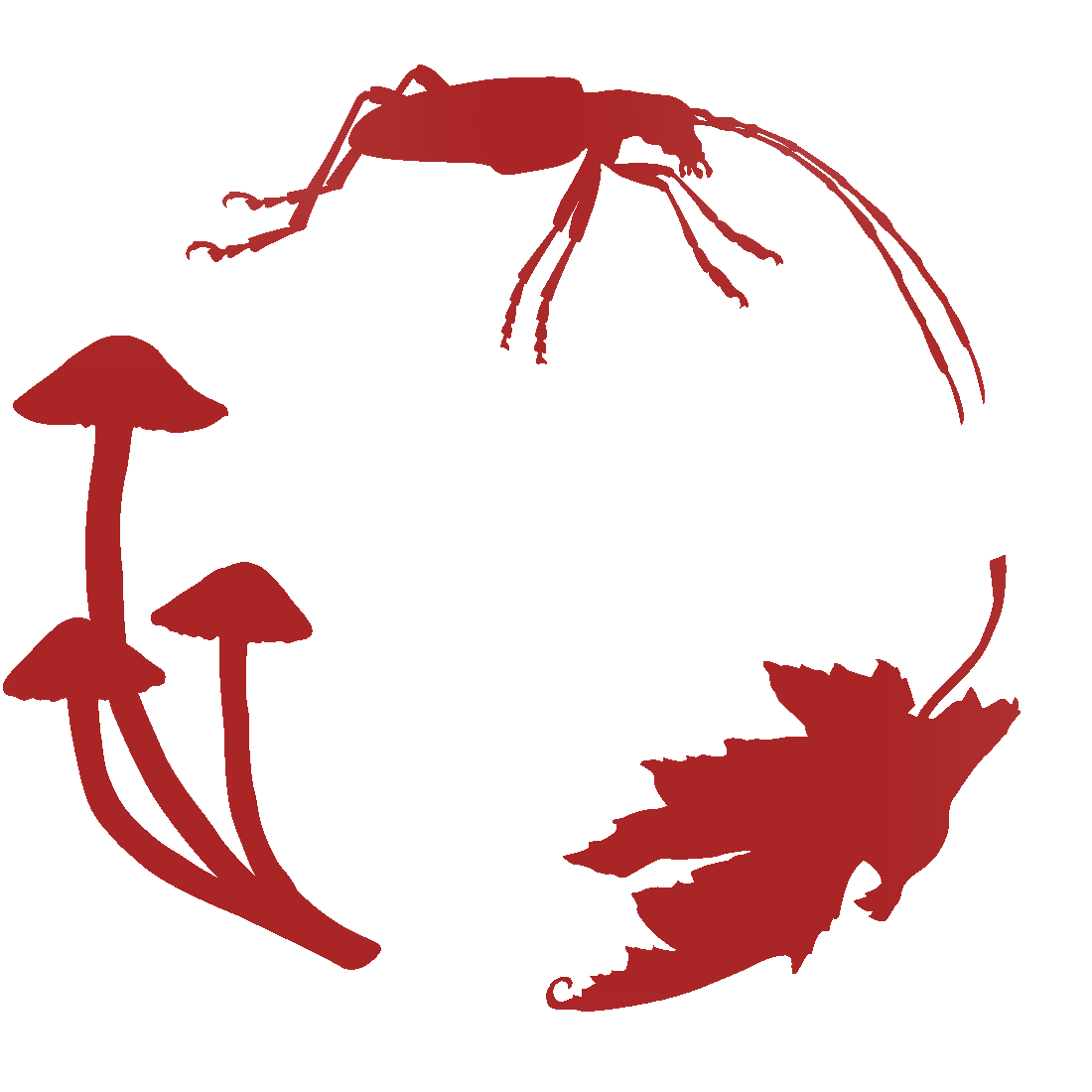 Known to be toxic - Toxic to mammals if ingested.
Known to be toxic - Toxic to mammals if ingested.

Source: Donna Bos
Trillium erectum
Red Trillium
Trille rouge
Synonyms
birthwort
ill-scented trillium
ill-scented wakerobin
purple trillium
wakerobin
trille dressé
No seeds available for this plant.
We currently accept seeds for this plant
Bloom Colour: Red
Bloom Period: Apr - May
Max Height: 2.0 feet
Max Width: 1.0 feet (spreads by rhizome)
Light Condition:
 Less than 2 or 3 hours of direct sun a day
Soil conditions:
Less than 2 or 3 hours of direct sun a day
Soil conditions:
 Tolerates medium soil condition
Tolerates medium soil condition
 Less than 2 or 3 hours of direct sun a day
Less than 2 or 3 hours of direct sun a day
 Tolerates medium soil condition
Tolerates medium soil condition
Lifespan:
Perennial
plants that will that come back year after year
(Spring Ephemeral)
Gardener Experience:
 Does not spread uncontrollably
Does not spread uncontrollably
 Does not spread uncontrollably
Does not spread uncontrollably
Landscape Uses:
 Suitable for woodland gardens
Suitable for woodland gardens
 Suitable for woodland gardens
Suitable for woodland gardens
Ecological Benefits:
No ecological benefits information available.
Tolerates:
 Deer resistant
Deer resistant
 Rabbit resistant
Rabbit resistant
 Tolerates limestone conditions
Tolerates limestone conditions
 Tolerates juglone conditions
Tolerates juglone conditions
 Tolerates transplantation
Tolerates transplantation
 Deer resistant
Deer resistant
 Rabbit resistant
Rabbit resistant
 Tolerates limestone conditions
Tolerates limestone conditions
 Tolerates juglone conditions
Tolerates juglone conditions
 Tolerates transplantation
Tolerates transplantation
Special Features and Considerations:
 This plant causes skin rashes
This plant causes skin rashes
 This plant causes skin rashes
This plant causes skin rashes
Plant Location
Native to Ottawa region: Yes
Distribution according to VASCAN

Ephemeral
Native
Introduced
Excluded
Extirpated
Doubtful
Absent
Thrives in Ecozones
- Atlantic Maritime
- Boreal Shield
- Mixed Wood Plains
Ecological Benefits
Butterflies Supported by Trillium erectum
- Crambodes talidiformis (Verbena)
- Euplexia benesimilis (American Angle Shades)
Specialized Bees Supported by Trillium erectum
No bee data available for this plant.
Plants that grow in similar conditions, that bloom at the same time.
Complementary Plants
- Anemone parviflora
Small-flowered Anemone
Anémone à petites fleurs - Erythronium albidum
White Trout Lily
Érythrone blanchâtre - Gaultheria procumbens
Eastern Teaberry
Thé des bois - Trillium grandiflorum
White Trillium
Trille blanc - Viola sororia
Woolly Blue Violet
Violette parente
Substitute For Non-Native Plants
- Plantago (Non-Native Plantain)
- Lamium (Dead nettle)
- Ajuga reptans (Bugleweed)
- Lysimachia nummularia (Creeping Jenny)
- Iridaceae (Crocus)
- Scilla siberica (Siberian Squill)
- Salvia (Non-Native Sage)
- Hyacinthus (Non-Native Hyacynth)
- Petunia (Non-Native Petunias)
- Myosotis sylvatica (Forget-me-not)
- Phlox subulata (Moss Phlox)
Sowing Information
Download Seed Envelope Labels (PDF)
- Sowing depth: Sow just below surface
- Sow anytime
- Stratification duration: 0 days
- Notes: Double dormancy.
Harvesting and Seed Sharing
- Harvest start month: July
- Harvesting indicator:
- Berries are ripen and easily fall off or have fallen off
- Harvesting:
- Squeeze berries to extract seeds, wash with soapy water, rinse throroughly
- Seed viability test:
- No test needed before donating
- Packaging measure: Six (6) seeds (eyeball)
- Seed storage:
- Keep moisten and cool, in a ziploc bag, in the fridge, with the seeds in soil, paper towel or coffee filter, until donation
- Cultivar: Yes, do not donate unless you know source, and there are no known cultivars in your garden or at proximity
- No harvesting video available at this time.
Toxicity Notes
Toxic to mammals if ingested.


 Canadensis
Canadensis
